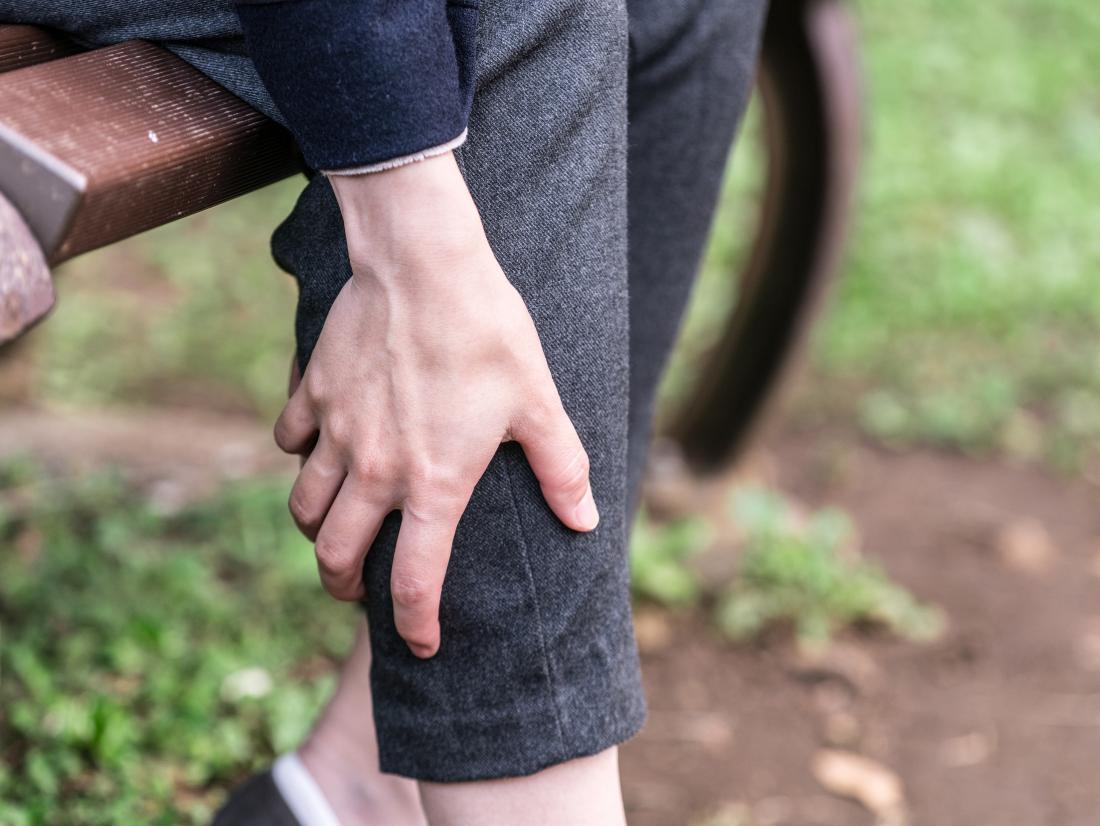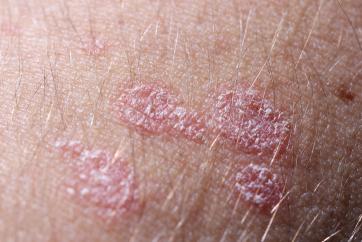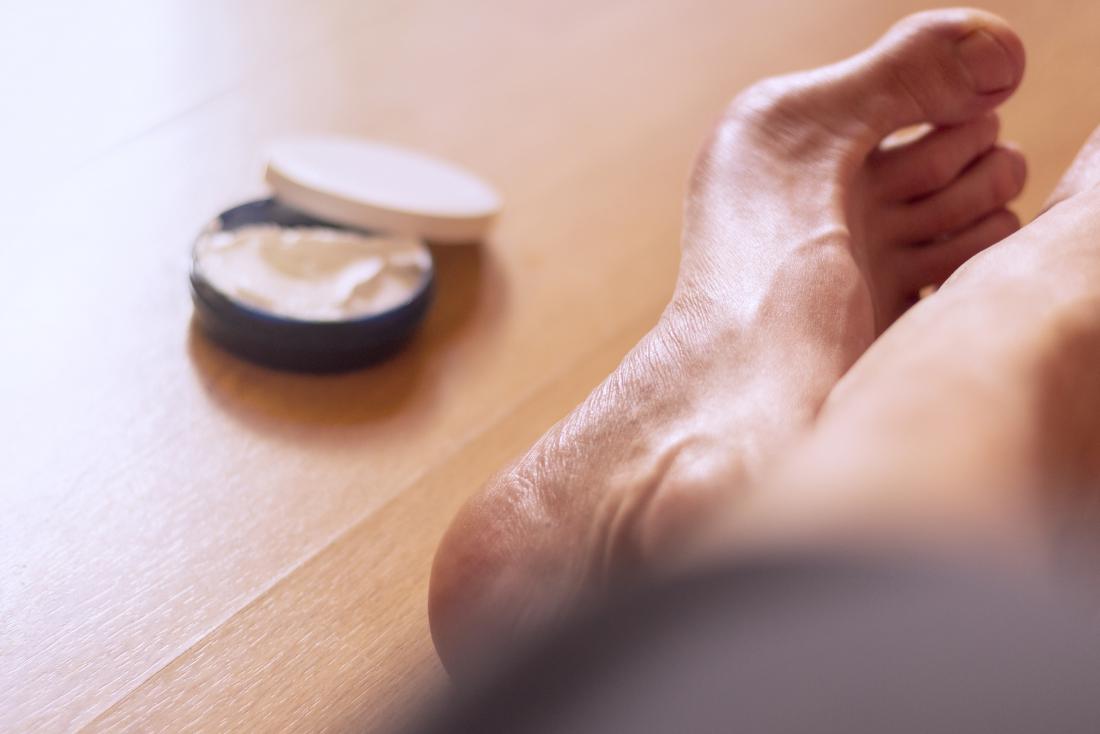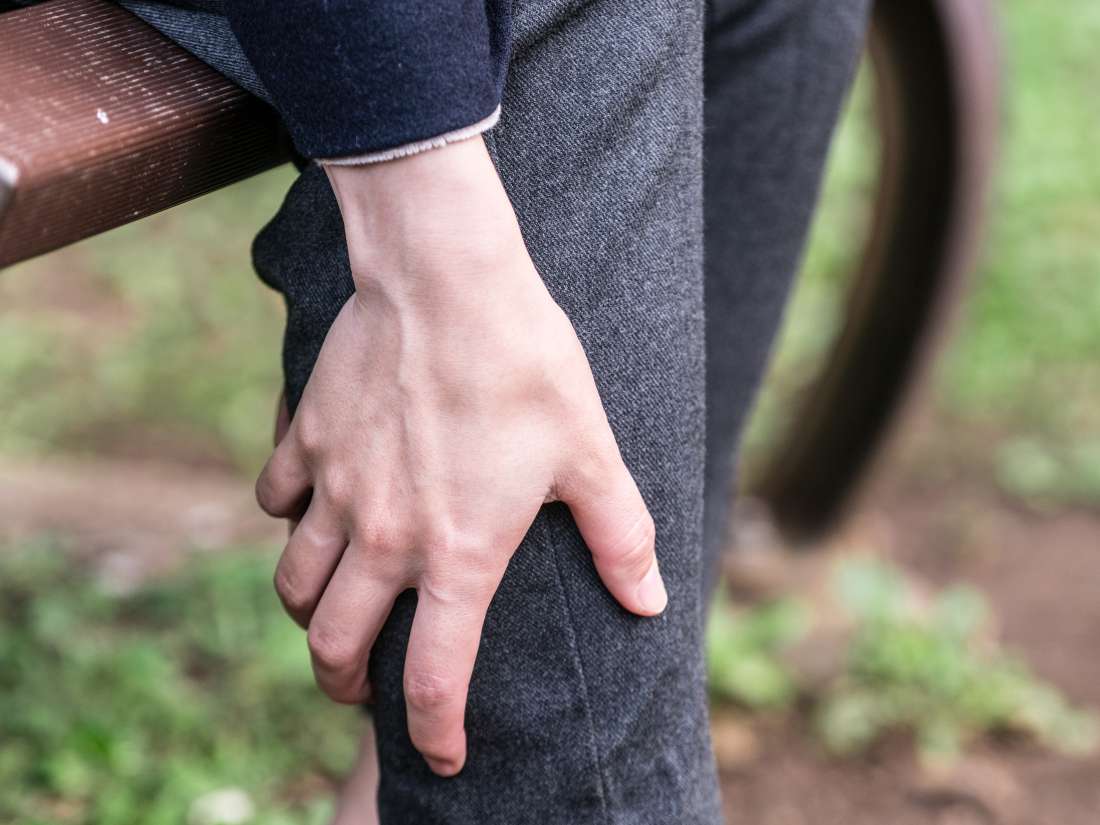Typically, itchiness in the legs does not indicate a serious health problem. However, understanding what is causing the itch can help a person find relief, and where necessary, receive medical treatment.
This article looks at common causes of itchy legs and how to relieve the itching.
Possible causes

Causes of itchy legs include dry skin, bug bites, and chronic skin conditions.
Common causes of pruritus on the body or the legs include:
- dry skin
- irritation from bug bites or allergies to plants, such as poison ivy
- chronic skin conditions, such as eczema and psoriasis
- allergic contact dermatitis, which is an allergic reaction to topical medications
- irritation due to shaving or sensitivity to cosmetics and chemicals
- stress
- diseases, such as diabetes, some cancers, kidney disease, and liver disease
We discuss some of these causes in more detail below.
Dry skin, or xerosis
Dry skin is a major cause of itching. The medical term for dry skin is xerosis. It can occur for many reasons, such as age, climate, and skin conditions. Activities, such as swimming in chlorinated water or spending time with the skin in water can cause dry skin.
Dry skin can cause the following symptoms:
- rough, scaly, or flaking skin
- itching
- cracks in the skin, which may bleed if severe
- gray, ashy skin on dark skin tones
Dry skin may be an early sign of dermatitis, or skin inflammation, which can cause an itchy rash or patches of dry, irritated skin. Without treatment, dermatitis often gets worse, so people who suspect they have dermatitis should see a doctor.
Read more about dry skin patches.
Bug bites or plants
If a person has spent time outdoors recently, they might have encountered biting insects or plants that irritate the skin, such as nettles or poison ivy. Biting insects include mosquitos, spiders, and parasites.
Chemicals in some insect bites and plants can cause exposed skin to become itchy. They can also cause swelling, skin redness, and hives.
People do not always notice when they get stung and may only develop symptoms later. Stings on the legs frequently occur when people wear shorts or skirts outdoors.
Eczema
Eczema, or atopic dermatitis, is a chronic condition affecting more than 30 million Americans, according to the National Eczema Association. It can cause red, itchy, and irritated skin almost anywhere on the body, including the legs.
In babies, eczema is most common on the cheeks and outer arms and legs. In older children and adults, it appears most often on the backs of the knees, the insides of the elbows, and the back of the neck.
Read about different types of eczema.
Psoriasis

Psoriasis may cause inflamed plaques to appear on the body.
Psoriasis is an immune-related disorder that causes inflamed plaques on many areas on the body. Some people experience significant itchiness from the plaques, which tend to develop on the knees, elbows, and scalp.
There is no cure for psoriasis, but most people with the condition find relief through simple treatment options and by learning to avoid triggers that can cause flares.
Read about different types of psoriasis.
Other skin conditions
Other skin conditions that can cause itchy legs include shingles, ringworm, and hives.
Shaving the legs
Shaving is another possible cause of itchy legs. Razor blades scrape and irritate the skin and can cause ingrown hairs, which can lead to sensitive and itchy skin.
Read about why shaving can cause itchy legs.
Allergic reactions
Contact allergies can cause a red itchy rash across the body when a person comes into contact with a specific allergen. Common allergens include nickel, rubber substances, and topical antibiotics, such as Neosporin.
This particular type of skin reaction is known as allergic contact dermatitis.
Exercise-induced urticaria
Though rare, some people can get hives from exercise. Exercise-induced urticaria can cause itchy legs, among other areas.
In addition to itching, the symptoms usually include hives, skin flushing, cramps, trouble breathing, a headache, and possible swelling around the face.
Exercise-induced urticaria can be a dangerous medical condition. Anyone who develops these symptoms during exercise should stop exercising and see a doctor as soon as possible.
People can also get cholinergic urticaria, a condition that causes hives when the skin gets warm and sweaty.
Stress
Researchers have also identified stress as a potential cause of itching. Researchers do not know why this is, but they think that complicated brain activity involving the hippocampus and subcortical brain structures may play a role.
Stress-related hives are common.
Read about how stress can cause a rash.
Diabetes
Many people with diabetes experience skin problems and they can be quite severe, so a person should take them seriously.
Itchy legs can be a sign of poor circulation or dry skin. Itching can also be a sign of nerve damage, or diabetic neuropathy.
If a person with diabetes is concerned about itching, they should ask their healthcare providers to check for this condition. Regular moisturizing can help people with diabetes protect their skin.
Read about diabetes and itching.
Other medical conditions
Skin itching can sometimes be a sign of serious medical issues, such as Hodgkin’s lymphoma, HIV, kidney problems, or an overactive thyroid gland.
Tips for diagnosis
To narrow down what may be causing itchy legs, consider the following:
How long have the legs been itching?
For example, insect bites get better within a few days, so discomfort that lasts longer than this or does not go away probably has another cause.
Is there a rash?
Some causes of itching involve a rash while others do not. The specific type of rash will help a person narrow down what is causing it.
In general, skin conditions, skin irritation, or bug bites cause itching associated with rashes. Itching without a rash is typically due to system-wide problems.
Read about causes of itching with no rash here.
Are there any preexisting medical conditions?
Skincare is an important issue for people with diabetes. Anyone who notices they have itchy legs should address it with their healthcare team.
Has the person encountered any triggers?
Triggers include:
- spending time in the outdoors
- changing laundry detergents
- shaving the legs
Exposure to possible allergens, such as a new topical cream, could be the culprit. Itchiness that develops shortly after shaving means this is likely to be the cause.
How to relieve itchiness

A person can try applying OTC hydrocortisone creams to treat itchy legs.
There are a variety of different tactics people with itchy legs can try at home to relieve the symptoms. Avoiding scratching that itch is a great start — this will prevent the irritation from getting worse.
Studies have shown that applying oatmeal based lotions reduced the intensity of itching, skin dryness, and roughness. Oatmeal baths can also be helpful, particularly for children and infants with itchy skin.
Other self-care remedies include:
- using cold compresses
- moisturizing regularly with specialty creams to prevent dry skin
- choosing lukewarm showers or baths and avoiding hot water, which irritates the skin
- taking over-the-counter (OTC) antihistamines
- applying OTC hydrocortisone creams to soothe irritated skin
- using hypoallergenic laundry products
- wearing clothing made from soft fabrics that let the skin breathe
Read more about natural ways to relieve itching.
When to see a doctor
It is time to see a doctor about itchy legs if they do not get better in a week or more or show no signs of improvement after home treatment.
A doctor can determine what is causing persistently itchy legs and prescribe lotions, gels, cleansers, medications, and other treatment to provide relief.
Summary
In most cases, people with itchy legs can address or manage their condition with careful skin washing, regular moisturizing, and OTC medications.
People with chronic skin conditions, such as eczema, may need to use prescription medications to reduce their itching.
When severe health conditions cause itchy legs, it is essential to see a doctor who can assess the condition and provide relief from symptoms.
